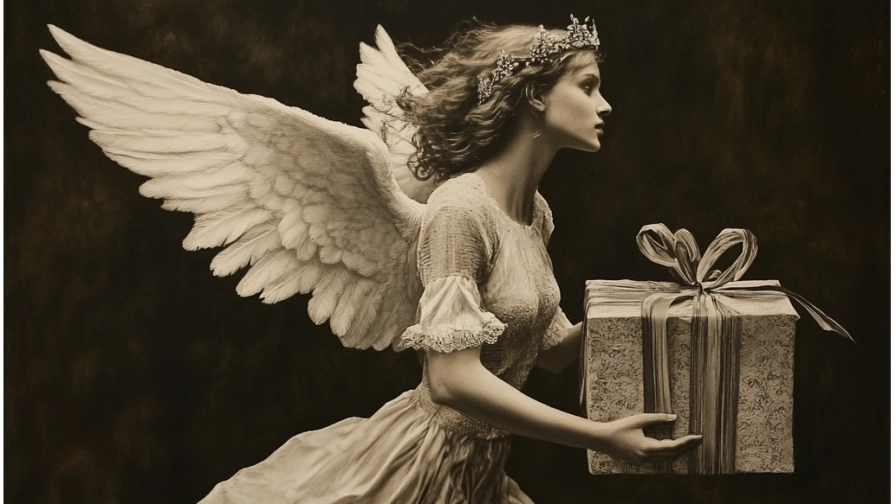The Angels Gift
Published 12 Feb 2025

During the ageing process, whisky stored in wooden barrels undergoes evaporation. This evaporation process is crucial for whisky development, as it facilitates interaction between the spirit and the wood during environmental fluctuations. Both alcohol and water evaporate and can leave the cask through the barrel's pores, disappearing into the atmosphere. This loss, known as the Angel's Share, occurs due to the porous nature of the wood. The primary factors influencing these evaporative losses are temperature and humidity. Conditions often favour the evaporation of alcohol over water meaning that the alcohol proof decreases over time, but this is not always the case. Interestingly, sometimes the concentration of alcohol in the cask actually increases over time. This occurrence is sometimes called the Angel's Gift, a less common but fascinating aspect of whisky maturation.
The specific behaviour of evaporation depends on various environmental factors, including warehouse design and location. Both can influence ambient temperature and humidity. Higher temperatures increase the evaporation of both alcohol and water, while humidity affects the rate at which each component is lost. When the alcohol proof increases during maturation, it's primarily due to low humidity causing water to evaporate faster than alcohol.
In Scotland, the cool, humid climate typically results in alcohol evaporating faster than water, leading to a decrease in alcohol strength during maturation. The average humidity levels in Scotland, around 80%, ensure this consistent pattern.
Conversely, in Kentucky the average humidity varies by location but generally much lower and hovers around 67% annually. Under these conditions water may evaporate more rapidly than alcohol, resulting in an increase in alcohol proof over time. This is why some bourbon distilleries regularly experience the Angel's Gift.
Studies on the effect of cask entry proof have suggested that lower alcohol percentages at filling produce softer more rounded whiskies, and higher concentrations produce brighter, livelier whiskies. Therefore, the Angels Gift will surely affect the flavour of the whisky, but as the changes are small and slow its it unlikely to have as big an effect as the initial concentration at filling.
It is unclear exactly which distilleries experience this phenomenon of the Angels Gift, but we do know that Circumstance Distillery in Bristol is one of them. Location may play a part. The mean temperature in Bristol is 11 degree celcius which is warmer than Scotland's mean temperature of 7 degrees celcius, The distilleries location in the city center may increase the difference due to the ‘urban heat island’ effect. Due to the maritime climate, the humidity in Bristol is comparable to Scotland with an average of around 80%, but an ‘urban dry island’ effect could mean that humidity is up to 8% lower than surrounding areas. The difference in humidity between Circumstance Distillery and Scotland is not as large as the difference between Scotland and Kentucky, so is less likely to be significant, but may still play a part. At Circumstance distillation and warehousing occupy the same building and it may be this that tips the balance resulting in gifts from the Angels.
